Ricardo Gonzalez poses a simple idea: Thinking about recovering from illness or injury is the main thing on the mind of a patient entering a healthcare facility for treatment.
But there’s another thing to worry about—the risk of becoming sicker than when that patient was admitted. It’s a real possibility. According to the Centers for Disease Control and Prevention (CDCP), one in 20 patients in a healthcare facility contract an infection through germs in the building.
An increasing number of cleaning companies are putting special emphasis on how they clean healthcare facilities and hospitals. It’s not just about scrubbing floors and properly handling the disposal of medical waste.
Gonzalez is CEO and founder of Hygiene Merit, a San Antonio-based business that offers state-of-the-art custodial services for the local healthcare industry. “We’re caring experts driven to common areas to make them uncommonly safe,” Gonzalez says. “The keyword there is safety.”
Gonzalez, who worked with a major cleaning company in Monterrey, Mexico, where he lived for several years, says cleaning is a huge professional responsibility, especially where the health of many people are concerned.
Hygiene Merit, certified by several relevant organizations and agencies, provides turnkey solutions for specific cleaning needs, and the company’s leaders offer personal attention to every client.
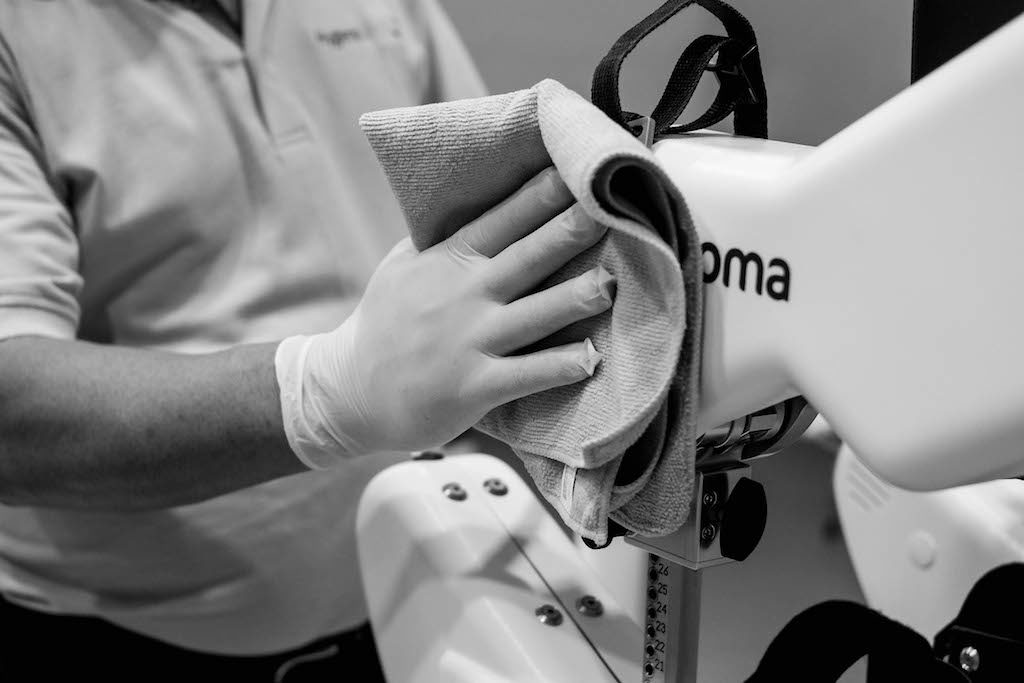 Hygiene Merit features state-of-the-art technologies, including control devices through which short-wavelength ultraviolet (UV-C) light is used to kill or inactivate microorganisms by destroying nucleic acids and disrupting their DNA. This disables microorganisms from performing vital cellular functions.
Hygiene Merit features state-of-the-art technologies, including control devices through which short-wavelength ultraviolet (UV-C) light is used to kill or inactivate microorganisms by destroying nucleic acids and disrupting their DNA. This disables microorganisms from performing vital cellular functions.
Hygiene Merit also uses hospital-grade disinfectants, dry carpet cleaning and HEPA (High Efficiency Particulate Air) filtration.
Gonzalez explains that he and his fellow leaders at Hygiene Merit apply a value to their service that is more than simply monetary in nature. He adds “the value of being clean and safe is a modest investment that produces substantial returns.”
A healthcare-associated infection (HAI) prevalence survey conducted by the CDCP found that on any given day, about one in 25 hospital patients has at least one HAI. There were an estimated 722,000 HAIs in U.S. acute care hospitals in 2011. About 75,000 hospital patients with HAIs died during their hospitalizations.
“People are trying to get better from being ill, they go into a hospital, they assume it’s a safe, clean, sterile place. Then some end up getting a different infection, and in some cases, it’s fatal,” he adds.
“We’re caring experts driven to common areas to make them uncommonly safe.” -Ricardo Gonzalez, CEO and Founder of Hygiene Merit
The cost, strictly in terms of additional cost of care, has been estimated at $30 billion to $40 billion dollars a year when it comes to patients contracting an illness based on infection inside the healthcare facility. Also, due to changing requirements in the healthcare industry, there has been a shift in who pays for these HAI infections. Years ago, health insurers and Medicare picked up most of that cost.
That cost is now being shifted to hospitals and facilities in the form of changes in reimbursement policies. Hospitals are now being scored based on items like patient satisfaction and the infection rate.
Gonzalez also points to the rising number of ambulatory service centers—the standalone, small to mid-sized emergency facilities—where Gonzalez says healthcare regulators are still figuring out to which extent regulations should be established.
“We see a huge opportunity there,” says Gonzalez. “The number of operations in these types of places has grown exponentially. My thinking is that if there are problems with infections in hospitals, it’s only a matter of time when you have those problems in small to mid-sized places.”
“It’s about perspective of the impact you’re having.” -Ricardo Gonzalez, CEO and Founder of Hygiene Merit
Back in Mexico, years ago, Gonzalez grew to appreciate the cleaning business as something more than just basic custodial functions. He was an executive in the carpet cleaning business and learned much about cleaning carpets adequately, as well as how other surfaces are contaminated from the grind of a daily business operation. He went into business with a stake in one company there.
When Gonzalez saw friends and other people from Mexico streaming into San Antonio to start life anew, he saw a chance to begin his own cleaning business in the United States. It was here that Gonzalez launched his own cleaning company, initially concentrating on restaurants, day care centers and office buildings, among other businesses and structures.
Then, Gonzalez’s growing business was afforded a chance at cleaning the Methodist Healthcare System corporate offices in the South Texas Medical Center. Methodist was so impressed with Gonzalez’s services that it asked him to expand beyond general cleaning activities.
Gonzalez saw it as an opportunity to become a full-fledged entrepreneur, sold his stake in the Mexican company, and then he formally launched Hygiene Merit in spring 2014. Gonzalez says he had to find a way to differentiate his business from his competitors around San Antonio.
When he visited prospective clients, such as small hospitals and ambulatory surgical centers, he expressed surprise by an apparent lack of state-of-the-art cleaning equipment. He expected to see more, thinking that terminal cleaning was necessary to fully ensure safety in operating rooms.
“Imagine your loved one is going to have surgery there. You’re hired to keep that area safe.” -Ricardo Gonzalez, CEO and Founder of Hygiene Merit
“That means top to bottom, more than just making sure equipment was sterilized,” Gonzalez explains. “You have to use the right disinfectants, hospital-grade disinfectants, and EPA-certified equipment to avoid cross-contamination — there’s a huge risk with that.” Cross-contamination is what happens when a cleaning person uses the same brush to swab the same room, he adds.
Another thing is that Gonzalez found that, oftentimes, people are very concerned about bacteria present on the floor or table in the operating room. “They think those are the safest places. But in a few instances, we found a laptop and bacteria was there and around surgical lights,” he says. “Those are the things you need to be very aware of.”
This is where UV-C comes into play. High-energy ultraviolet light in the area of the spectrum known as UV-C is produced by Hygiene Merit’s mercury lamps. This UV-C energy passes through the cell walls of bacteria, viruses and bacterial spores.
Once the UV-C energy is inside the microorganism, it is absorbed by the DNA, RNA and proteins. One of the primary mechanisms of damage created by UV-C is the fusing of the strands of DNA, creating what is known as “thymine dimers.”
When the DNA is fused, the organism can no longer replicate and is no longer infectious. A variety of viruses, bacteria and pathogens are deactivated. “It’s a matter of how much time we’re exposing those pathogens. You know the rate of pathogens and bacteria we’re killing based on that exposition,” Gonzalez says.
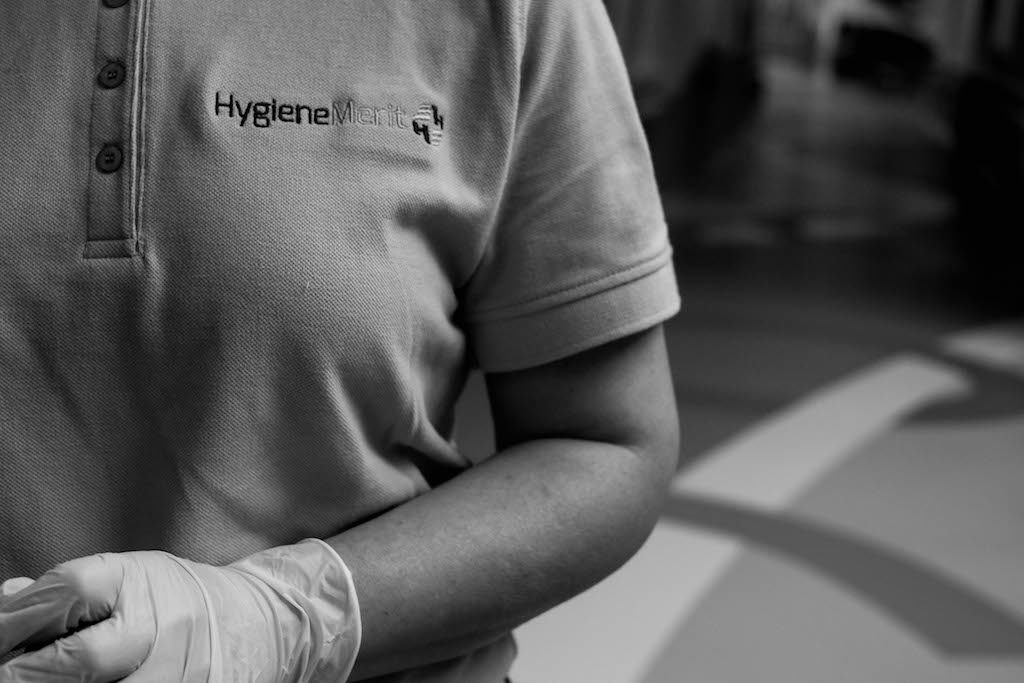
Hygiene Merit also specializes in using the HOST-brand, dry-extraction cleaning system for carpets.
“We found that 80 percent of carpet fiber is dry soil, with the top 20 percent being the oily, greasy part at the surface,” Gonzalez explains. “Most people concern themselves only with what they can see on the surface. The real problem is under that. The best way to remove the 80 percent of the problem is dry extraction.”
Most cleaners use hot water to extract dirt and other pollutants. A problem here, Gonzalez says, is that hot water and pressure actually, and literally, spread the particles. The HOST system relies on cylindrical brushes with heads rotating in opposite directions. While no extractor is 100 percent efficient, Gonzalez says this method is comparatively better. He adds that dry-extraction carpet technology also means the newly cleaned area quickly dries, and it can be traversed again in a matter of minutes so there’s no down time in a busy facility.
Gonzalez says statistics help prove that such comprehensive cleaning leads to as much as an 8 percent productivity gain, and tens of thousands of dollars in annual savings with a reduction of time lost because of ill employees.
Gonzalez also says a fully clean, sanitized facility results in higher satisfaction on the part of patients and other visitors, and it encourages those individuals to consider returning to that facility should the need arise.
Currently, Hygiene Merit has nearly 20 employees and has cleaned a growing number of local healthcare facilities. Most clients call upon Hygiene Merit when their services are sought. And the company’s newest client, the Children’s Rehabilitation Institute/TeletonUSA near Morgan’s Wonderland, will have Hygiene Merit come clean its building on a regular, scheduled basis.
“Most people concern themselves only with what they can see on the surface. The real problem is under that.” -Ricardo Gonzalez, CEO and Founder of Hygiene Merit
Ricardo’s wife, Nancy, has been helping to grow the business by interacting with residential clients. But Hygiene Merit plans to take advantage of every opportunity it has to work with healthcare facilities, restaurants, churches, schools and other commercial outlets.
Ricardo Gonzalez also places a value on his employees. Hygiene Merit touts a Christian-centric philosophy with the word “CLEAR” being an acronym for Gonzalez and his colleagues: Commitment, Loyalty, Excellence, Attitude and Respect.
“While the company is based on biblical principles, we still respect all other religions and beliefs,” Gonzalez says. “One of the things we are very clear about with our employees or people we hire is that we have values. Those values will determine your behavior. We are not looking for specific religions, just people who share the same values.”
Gonzalez says, really, there’s truth in the idiom “cleanliness is next to godliness.” “It’s also important for a person to understand cleaning won’t be minimized by someone else. It’s about perspective of the impact you’re having,” he explains.
“Imagine your loved one is going to have surgery there. You’re hired to keep that area safe.” With an ever-growing, impressive client list, Hygiene Merit will continue to ensure extraordinary safety through impeccable cleanliness.
For more information call 210.334.4333 or visit www.hygienemerit.com. Hygiene Merit is located at 21750 Hardy Oak Blvd., Suite 102 in San Antonio, TX 78258.
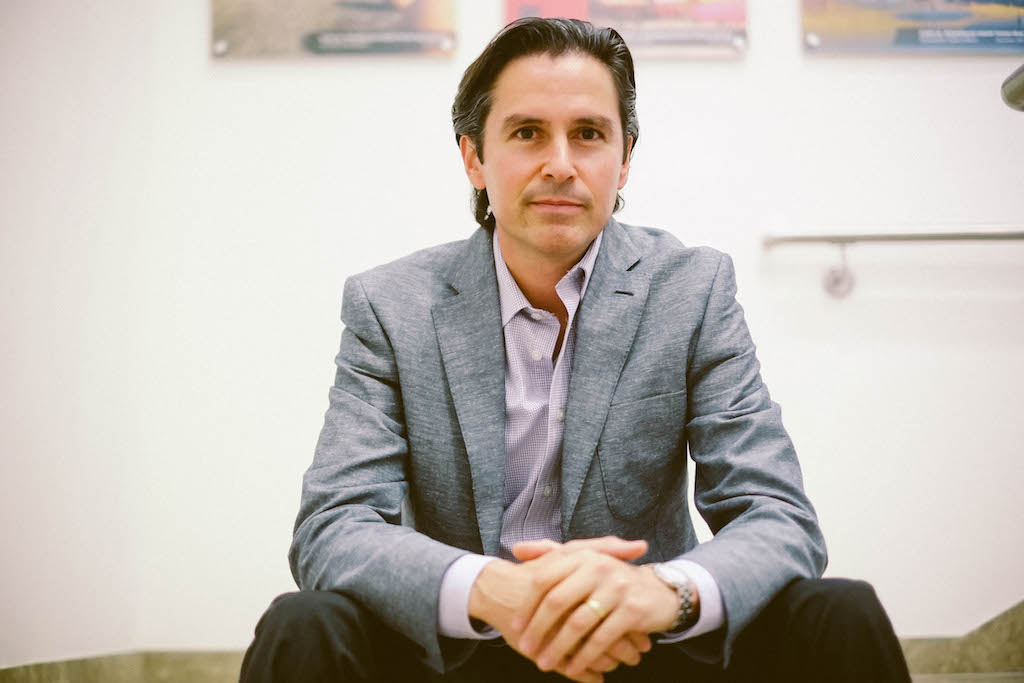



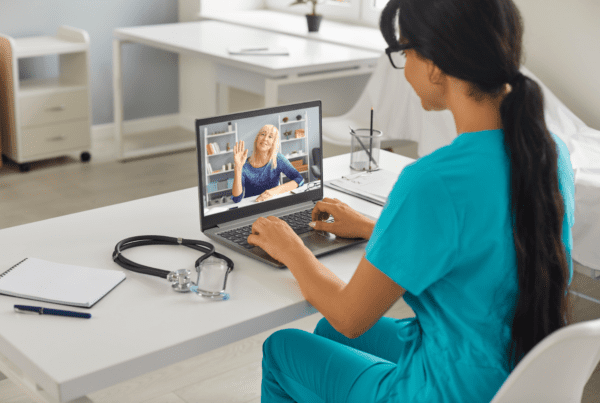
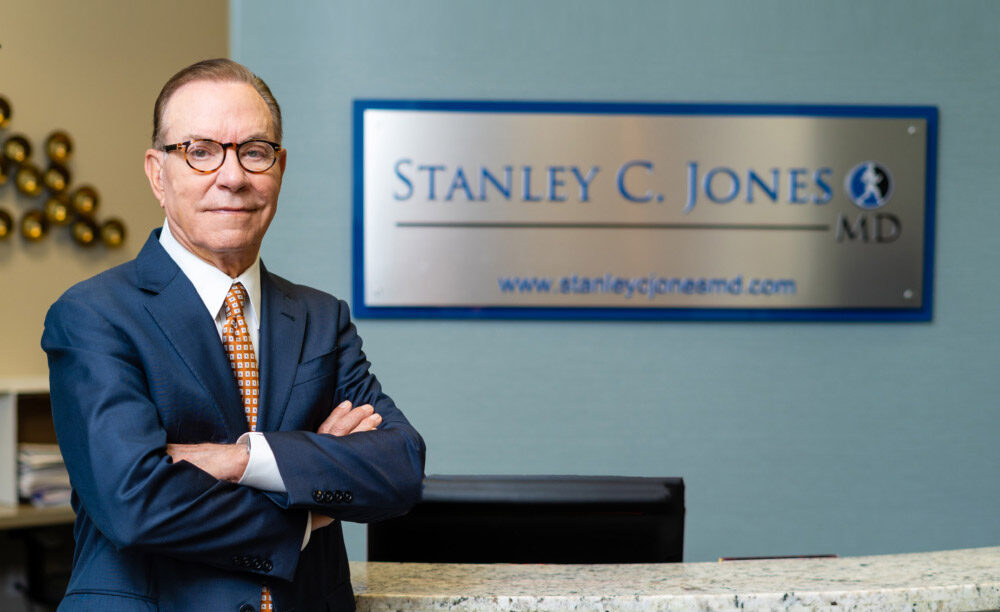

Recent Comments